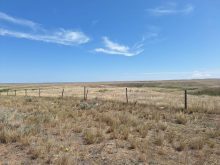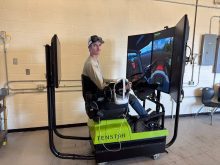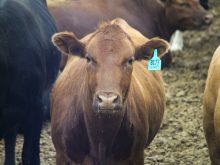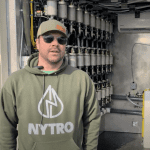Feeding animals based on knowledge of their genes sounds like something from science fiction.
Yet it’s already happened, thanks to technology developed by Alltech, a Kentucky-based agricultural company that has developed gene chips, which map the genes of the animals and allow the company to study the “nutrigenomics” of livestock.
“When we feed an animal, we look at the impact of feeding on the genetics,” said Jim Bannerman, the company’s Winnipeg-based director of national accounts.
“We look at if the genes are turned on or off, and we do that on everything we do now.”
Read Also

Farming Smarter receives financial boost from Alberta government for potato research
Farming Smarter near Lethbridge got a boost to its research equipment, thanks to the Alberta government’s increase in funding for research associations.
A huge portion of the improvement in animal performance in the last few years has come from genetics, he said, but nutrition and genetics have not generally been considered together. Two major goals of the science are to improve growth rates and feed efficiency.
The process doesn’t manipulate genes, but seeks to maximize the expression of genes already present in the animal. Geneticists started their research process by studying the effect of different feed regimes on baby chicks, as the most pronounced effects are seen in very young animals.
“Some of those genes can be turned on permanently by nutrition and some of them can be turned off permanently,” Bannerman said. “Sometimes there’s a very small window, a matter of hours after birth when we can do this. The more we learn, the more we understand how precise this science has become.”
Most people who raise broilers or layers have a three-phase program. The Alltech program introduces a fourth phase, the conditioning phase.
“There’s another phase in there, where we’re feeding a specific diet to affect those genes,” Bannerman said.
“The conditioning phase is very short and we manufacture the feed for this phase.”
He said the feeding program can result in improved meat quality and does not involve any additional costs.















